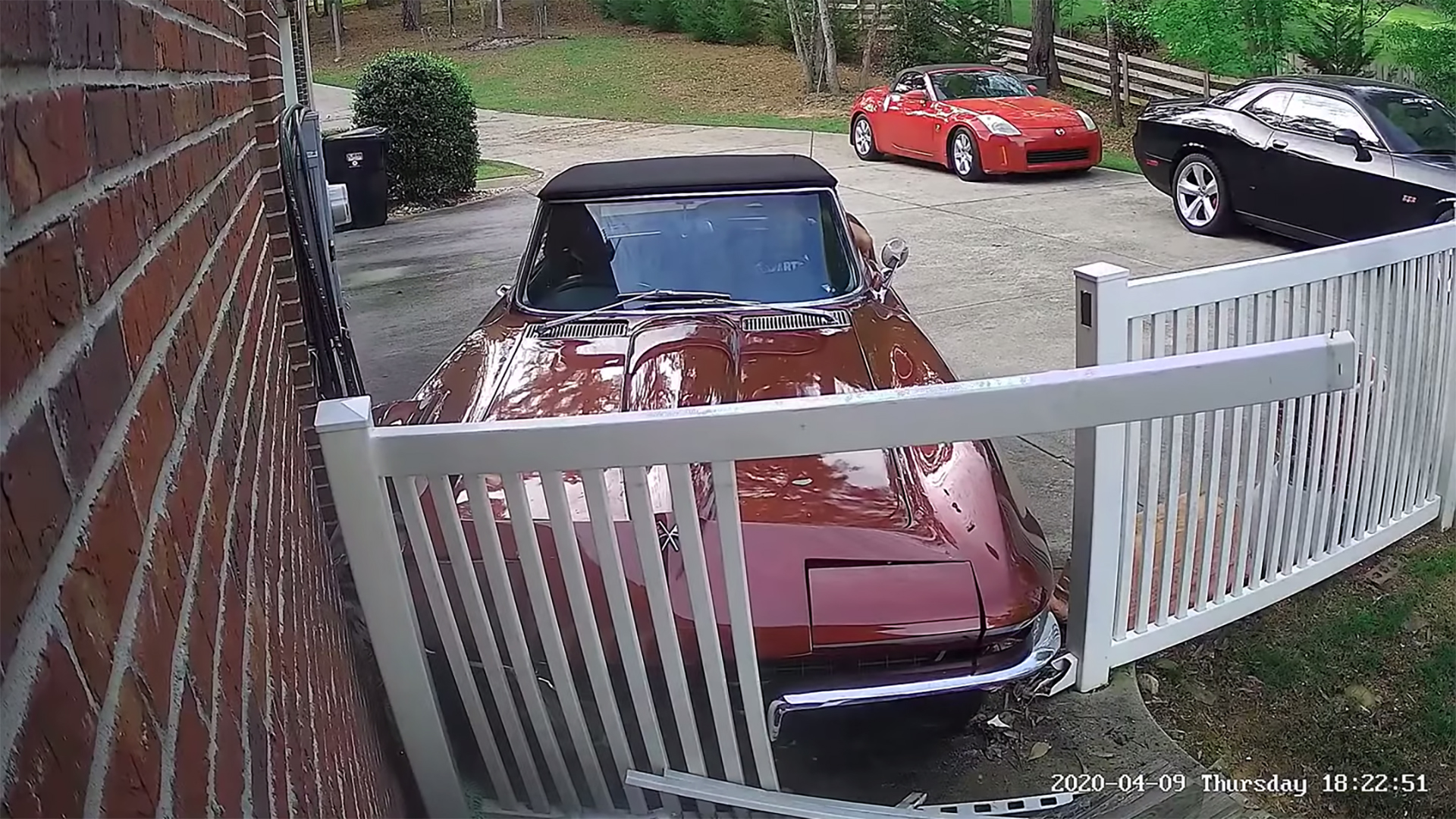

Dusting off your classic car for a quick drive is cathartic—until it’s not. With age comes problems and if said classic has been parked for a while, there’s always the possibility of an unexpected failure. Take this ’66 Chevy Corvette, for example; it’d been in the garage for six months and after a quick romp, the owner discovered a major problem with the brakes. If only the issue had reared its head before the car ran into a house.
Here’s how the video’s description goes:
“First time pulling my 1966 Vette out of the basement garage in six months. I backed up my steep driveway showing off for my daughter’s boyfriend. I spun the tires going down to my upstairs garage. When I tried to brake, the pedal went to the floor. I pulled the emergency brake. Nothing. I had three options. Hit the cars parked on the left side of my driveway, run through my fence and most likely into our lake, or run into my house. I chose the house.”

While we wish the unlucky Corvette driver and his C2 both the best, let’s think about brakes failures for a moment. Why do they happen?
When the pedal feels spongy or even goes to the floor without engaging the system, it’s mainly caused by one of the following four reasons:
- There’s air in the brake lines. The system needs to be bled.
- The brake fluid is leaking somewhere. That needs to be addressed to restore pressure after a refill.
- The master cylinder is wearing out. If the main valve can’t do its job anymore, the part needs to be refurbished, or simply replaced.
- The brake booster is giving up. Again, this is something that needs to be fixed immediately, because while unassisted brakes can still function, in most situations, the lack of support will lead to insufficient stopping power.
When unearthing your vehicle of any age from the garage, or in fact anytime following a six-month hiatus, please always check your tires, brakes and lights first. It’s better to discover a problem at low speeds or when parked, or else you might end up like this guy.
Ironically, four-wheel disc brakes were standard on the Corvette starting in 1965. Shame they couldn’t come in handy here…

Got a tip? Send us a note: tips@thedrive.com